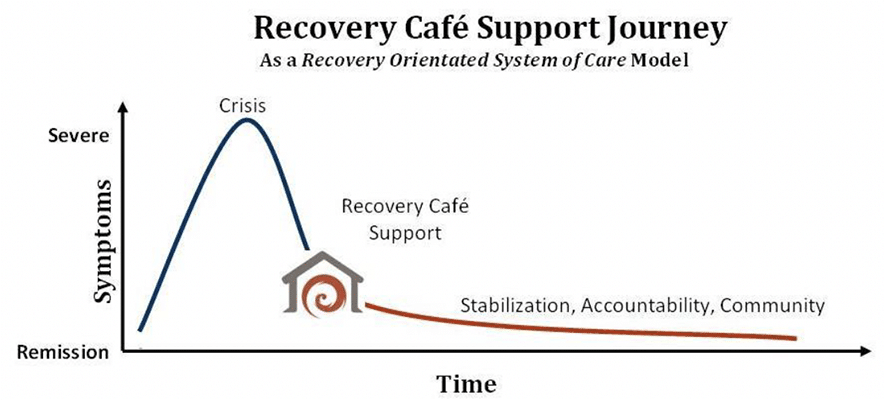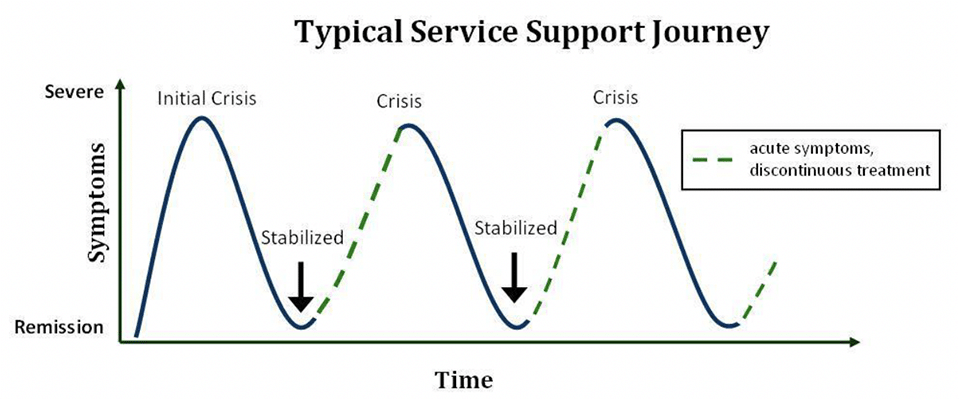Everett Recovery Café was founded on the belief that every human being is beloved regardless of past trauma, mental and emotional anguish, addictive behaviors, or mistakes made.

Recovery Orientated System of Care
Recovery Café utilizes the Recovery Orientated System of Care (ROSC) as a more effective approach to substance abuse and alcohol dependency issues. The ROSC is designed to meet each individual where they are on the recovery continuum. It engages with them for a lifetime of managing their disease, focusing holistically on each person’s needs. ROSC empowers them to build a life that realizes their full potential. This person-centered system of care supports the individual as they work to establish a healthier life. It also helps them recognize that we all need to feel a sense of membership and belonging to a community.

Traditional methods
With traditional methods of recovery treatment, those only receiving support services when in total crisis may gain some stability. However, when those support resources are removed, the stage is set for a new round of crisis. Emergency interventions to stabilize a person in crisis only to ‘abandon’ them when they begin to improve is time-consuming, expensive, and ineffective. It increases the suffering of the person as they “bounce” from acute need to remission.

At Recovery Café, we provide support, resources, and a community of care along the entire continuum of a person’s need for recovery assistance. Whether a person is In-crisis, newer to recovery, in long-term recovery, post-relapse, experiencing a difficult life change, enduring a physical health challenge, or mental health transition, the Café is there as a community refuge, practicing evidence-based addiction support and love for the individual. We teach people ways to manage their mental and physical health, maintain sobriety, and build and belong to a community. The Café staff helps each individual reclaim life as a person worthy of giving and receiving love.
We work to prevent the rollercoaster cycle of relapse crisis. Our approach not only saves lives, but taxpayer money that would have been spent on emergency interventions. This allows mental health and addiction support professionals to focus on health maintenance and addiction prevention, a much more humane and effective solution.
Accountability Structures
Recovery support is delivered, and healing is fostered, through four types of accountability structures:
- Recovery Circles – Small support groups, led by a trained facilitator, that educate Members about the recovery process. Recovery Circles help them develop skills for relapse prevention and teach accountability. Attendance at a weekly Recovery Circle is a requirement of Membership. Attendance is intended to teach and model responsibility. It also builds self-esteem, and discourages isolation that triggers substance abuse and exacerbates mental health challenges.
- The School for Recovery – Programs and classes that address the core and underlying issues of addiction and teaches Members new skills. The school’s current offerings include Addiction Recovery, Grief and Loss, Art, Letting go: Five Steps to Forgiveness. Living the Faith: Reflections on what it Means to Practice Islam, Judaism, Yoga and Christianity. Building Healthy Relationships; Yoga, and Creative Writing.
- Volunteer opportunities – These help Members learn the rewards of giving back, improve communication skills, and develop leadership skills. They also learn to interact effectively and productively with staff, other Members and outside volunteers who spend time at the Café sharing their gifts.
- Other recovery fellowships & programs – The Café hold space for other fellowships and programs to meet: AA (in English and Spanish), NA, Al anon, OA and DRA.
Recovery Café’s community of radical hospitality is an antidote to the despair so many of our people once faced. Our loving community has an immense power to bring out the best in people.
